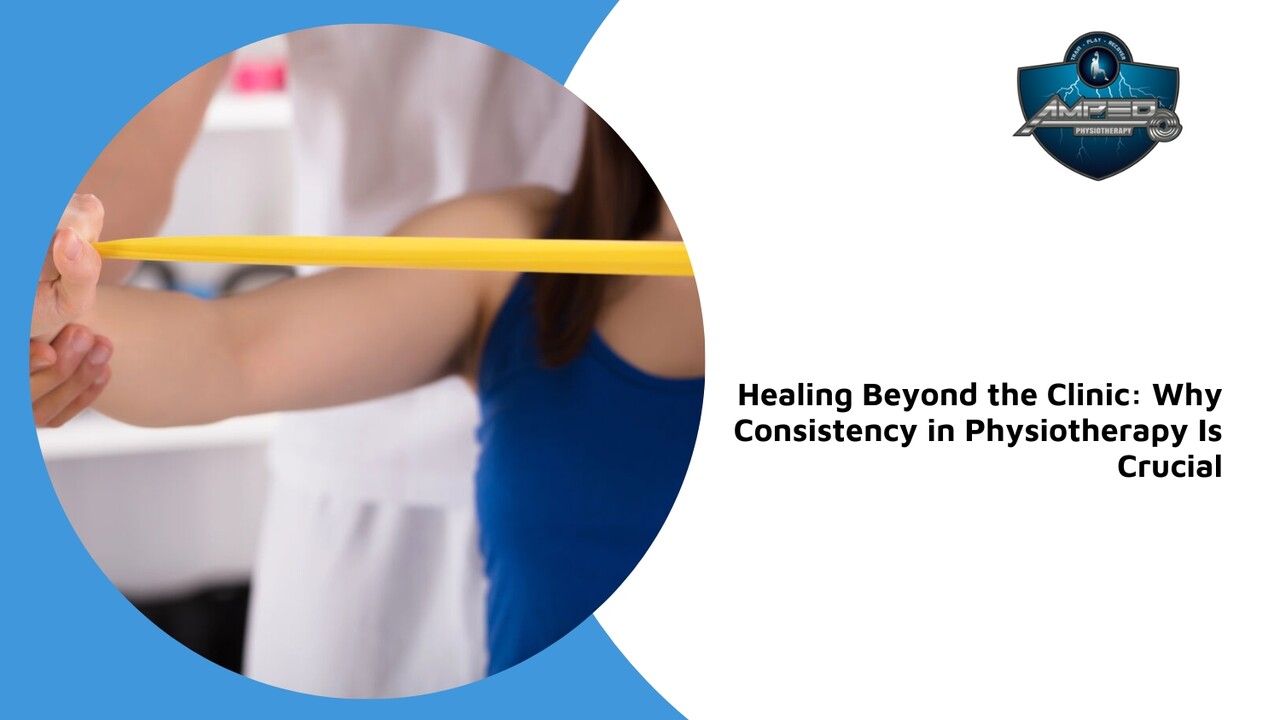Physiotherapy is often thought of as a hands-on field, focused on manual therapy and exercise-based rehabilitation. However, education is just as essential to the recovery process. When clients understand their conditions, learn proper movement strategies, and become active participants in their healing, outcomes are stronger and more sustainable. Knowledge reduces fear, boosts confidence, and builds lasting skills that support long-term health. In this blog, we’ll explore the vital role of education in physiotherapy, what people typically learn during sessions, and how therapists customize their teaching approaches to meet every individual’s needs.
Understanding the Role of Education in Physiotherapy Treatment
Education in physiotherapy goes far beyond simple advice. It plays an active role in helping people understand their bodies, their conditions, and the purpose behind every stage of their recovery. By explaining injuries, pain mechanisms, and movement dysfunctions in clear, relatable ways, physiotherapists enhance client understanding and promote greater engagement in the treatment process. An informed client is more likely to adhere to prescribed exercises and adopt positive lifestyle changes, both of which are critical for lasting progress. Education also helps reduce fear and anxiety by demystifying symptoms and fostering a sense of control.
Clients gain the tools they need to manage their conditions independently, which minimizes long-term reliance on therapy and empowers them to maintain their gains. Beyond immediate recovery, physiotherapy education also focuses on prevention, teaching proper posture, movement strategies, and exercise techniques to help avoid future injuries. Throughout this process, open communication and trust between therapist and client grow stronger, creating a true partnership in care. By building this educational foundation, physiotherapists equip you to take an active, confident role in your healing journey.
Topics Covered in Physiotherapy Education Sessions
Education sessions are tailored to each person’s condition, goals, and needs, but there are several core topics that physiotherapists frequently address to support recovery and prevention. Common topics include:
- Anatomy and Injury Explanation: People learn basic anatomy and how injuries, dysfunctions, or surgeries affect their body and movement.
- Pain Science and Mechanisms: Understanding the nature of pain—especially chronic or referred pain—helps people interpret their symptoms without unnecessary fear.
- Movement and Biomechanics: Education often includes instruction on optimal movement patterns to protect joints, muscles, and connective tissues.
- Posture and Ergonomics: Therapists teach proper posture for daily activities such as sitting, lifting, working at a desk, or standing for long periods.
- Exercise Prescription and Technique: Clients are guided on how to correctly perform exercises, why they are prescribed, and how to modify them if needed.
- Home Exercise Programs (HEP): Instruction on continuing therapeutic exercises outside of the clinic to reinforce recovery and maintain improvements.
- Lifestyle and Activity Modifications: Advice on pacing activities, stress management, and energy conservation strategies to support healing and prevent setbacks.
- Injury Prevention Strategies: Clients learn warm-up routines, stretching techniques, and strength-building tips designed to lower injury risk.
Covering these topics ensures that people leave physiotherapy sessions with actionable knowledge they can apply to their daily lives.
Methods Physiotherapists Use to Educate Clients
Effective client education requires more than just verbal explanations. Physiotherapists use a range of methods to make information accessible, memorable, and practical for every individual. Common educational strategies include:
- Verbal Communication: Clear, jargon-free explanations during sessions ensure that people grasp essential concepts and instructions.
- Demonstration and Modelling: Therapists demonstrate exercises, stretches, or postures, allowing clients to visually learn and replicate proper technique.
- Hands-On Guidance: Through tactile feedback during manual therapy or exercise correction, people feel the correct movement patterns in real time.
- Visual Aids and Diagrams: Anatomy charts, models, or digital apps are used to visually represent injuries, healing processes, and treatment plans.
- Printed or Digital Handouts: Customized exercise sheets, posture guides, or informational brochures reinforce lessons outside of therapy sessions.
- Video Tutorials: Some clinics offer video libraries or recordings of exercises to help clients review techniques at home.
- Client Education Workshops: Group sessions or workshops allow clients to dive deeper into specific topics like back care, shoulder health, or chronic pain management.
- Goal-Oriented Discussions: Setting specific, meaningful goals provides a framework for ongoing education about how each aspect of therapy ties into achieving desired outcomes.
By using a combination of these methods, physiotherapists ensure that each individual absorbs and retains the information needed to support their recovery process.
How to Educate Yourself About Your Condition and Treatment
While physiotherapists provide structured education during sessions, you can also take proactive steps to deepen your understanding and enhance your recovery. Self-education helps reinforce key concepts and encourages more meaningful participation in treatment. Strategies include:
- Asking Questions During Appointments: Clarifying doubts about the condition, exercises, or recovery expectations promotes active involvement and better understanding.
- Requesting Resources from the Therapist: Many physiotherapists provide reputable articles, videos, or guides tailored to the individual’s specific condition.
- Researching Reliable Sources: Trusted websites such as physiotherapy association pages, academic institutions, or professional health organizations offer evidence-based information.
- Keeping a Recovery Journal: Tracking symptoms, exercises, and questions for the therapist helps people recognize patterns and stay engaged.
- Reviewing Home Exercise Instructions: Consistently reviewing and practicing prescribed exercises with a focus on correct technique solidifies knowledge.
- Participating in Educational Workshops or Webinars: Many clinics and organizations offer sessions that explore topics like injury prevention, posture, or chronic pain management.
Taking an active role in learning allows clients to better navigate their treatment journey and make informed choices about their recovery.
Will Education Be a Part of Every Physiotherapy Session?
Education is an ongoing part of the physiotherapy process and is integrated into each stage of care. During the initial assessment, therapists explain the condition, contributing factors, and the overall plan for rehabilitation, setting clear expectations from the start. As treatment begins, early sessions focus on teaching clients how to manage symptoms safely, introducing foundational exercises, and providing strategies for effective movement. As people progress through therapy, education evolves to include guidance on safely increasing activity levels and recognizing signs of improvement or setbacks. Toward the return-to-activity phase, therapists offer specialized instruction tailored to sport, work, or daily living demands, ensuring a smooth transition back to normal activities.
Even as discharge approaches, education remains vital, with discussions around maintaining gains, preventing re-injury, and implementing long-term self-care strategies. Throughout the entire journey, therapists encourage ongoing dialogue, welcoming questions and reinforcing key lessons. By weaving education into every session, physiotherapists not only enhance individual confidence but also lay the groundwork for sustainable, independent management of health and movement.
Let Us Guide You Through Recovery
Recovery isn’t just about treatment—it’s about understanding your body, your condition, and your path forward. When education is built into physiotherapy care, clients gain the knowledge they need to take ownership of their healing and make meaningful, lasting progress. Whether you’re recovering from an injury, managing chronic pain, or simply striving to move better and feel stronger, education empowers you every step of the way. Book a session with Amped Physiotherapy in Ottawa to learn how guidance and personalized education can support your journey toward a healthier, more confident future.









